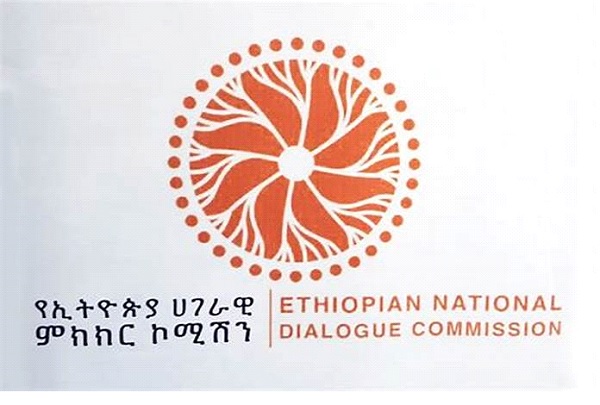
Ethiopia has faced numerous challenges over the past few years, and the National Dialogue Commission (ENDC) has emerged as a beacon of hope in ensuring peace and stability. Established three years ago, the commission is tasked with addressing the nation’s most pressing issues and finding sustainable solutions to foster unity and reconciliation.
Given the country’s societal diversity, any initiative demands careful consideration of potential consequences. As the country grapples with multiple challenges, both the government and citizens are striving to alleviate the nation’s pain and find effective solutions. Every stakeholder is contributing to overcoming the difficulties that have threatened the nation’s stability.
After so many ups and down in the past few years, the country pinning hope on the Commission to ensure long-lasting peace and stability in the country as actions have indicated a good start for the commission. It has been only three years when the commission was established by law and got the burden to bring the best possible solution for the nation’s prominent problems.
In recent years, the country has faced numerous crises that nearly unraveled its fabric, making the road to sustainable peace bumpy. To counter such existential threats, Ethiopia needed an inclusive platform to establish common ground for dialogue. The ENDC was created to fulfill this role, tasked with building a foundation for meaningful and constructive discussions.
From its inception, the ENDC has symbolized hope for Ethiopians and the international community. The commission’s efforts offer a pathway to overcoming challenges once considered insurmountable. While progress is ongoing, the commission has already implemented significant activities, including data collection across the country. Starting its work in Addis Ababa, it has shown promising results, signaling the potential to achieve its ambitious objectives.
To build credibility and effectiveness, the commission has embraced principles of inclusiveness, participation, and impartiality. These principles must underpin every step of its process. Additionally, actors and institutions with differing perspectives must be integrated into the dialogue. Their voices, however diverse or contradictory, are crucial to creating a genuine sense of ownership and trust in the process. Platforms for wide-ranging participation will ensure the commission’s work is supported by all sectors of society.
Furthermore, the ENDC can learn valuable lessons from other countries that have successfully implemented national dialogue processes. While contexts differ, experiences from nations like Tunisia—where effective communication and smaller, targeted discussions fostered global acclaim—can provide guidance for Ethiopia’s unique challenges.
In an interview with the Ethiopian Press Agency (EPA), ENDC Commissioner Belen Gebremedhin highlighted the commission’s progress over the past three years, emphasizing its efforts to ensure inclusive and participatory dialogue. By drawing on international experiences, the ENDC aims to adapt successful practices to Ethiopia’s context. Belen noted that while countries like Tunisia have achieved significant outcomes with fewer participants, Ethiopia is tailoring its approach to address its unique complexities.
The commission has prioritized building trust and fostering inclusive dialogue, including marginalized groups and previously overlooked regions such as Southern Ethiopia, Southwestern Ethiopia, and Benishangul-Gumuz. This approach strengthens societal connections and addresses historical inequities. Belen underscored the importance of involving diverse stakeholders—including political parties, teachers’ associations, religious leaders, youth, women, persons with disabilities, and traditional associations—to foster a shared sense of ownership and commitment to sustainable peace.
Despite these efforts, challenges remain. Sporadic conflicts, logistical constraints, and the influence of irresponsible social media present significant obstacles. To counter these, the ENDC collaborates with various partners to ensure progress continues and peace becomes a reality.
ENDC Commissioner Ambaye Augato (PhD) outlined plans for a major dialogue in Oromia State, involving participants from over 350 districts. The event in Adama is expected to draw over 7,000 participants, including farmers, pastoralists, women, youth, and community leaders like Aba Gedas. The dialogue aims to bridge gaps and foster relationships across Oromia’s diverse communities. Integrating traditional conflict resolution methods into these dialogues strengthens the overall process and enhances democratic systems.
Solomon Ayele, Chairperson of the Ethiopian Political Parties Joint Council, stressed the importance of a multi- sectorial approach to ensure the success of the National Dialogue. He emphasized that, despite ideological differences, most political parties are united in their commitment to Ethiopia’s unity. For the dialogue to succeed, political participation must remain active and inclusive.
The Council, comprising 50 political parties, has played a vital role in supporting the ENDC’s efforts. Of these, 45 parties are actively engaged, with attempts to involve the remaining five. Solomon reiterated that active political involvement is essential to resolving disputes and fostering national development. The dialogue, he argued, must bridge divides, expand democratic perspectives, and address conflicts to ensure sustainable peace and development.
The Commission represents a vital step toward resolving the nation’s pressing issues. By fostering inclusivity, learning from international experiences, and addressing marginalized voices, the ENDC is charting a course for long-term stability and unity. While challenges remain, the commission’s achievements thus far provide hope for a peaceful and prosperous future for Ethiopia.
To sum up, in order to make the commission and its work more accurate and trustworthy, those principles must be incorporated in its every step. Even actors and other institutions that follow a completely different route from the commission must also be included in the process. Those organs are also part of the society and their voices must be heard. No one must not leave behind. It has to be open for any disparity and even unwanted ideas in order to be more credible. When there are platforms where everyone can participate, then the commission can build the essence of ownership and the process can be supported by every stakeholder.
BY DANIEL ALEMAYEHU
THE ETHIOPIAN HERALD TUESDAY 10 DECEMBER 2024




